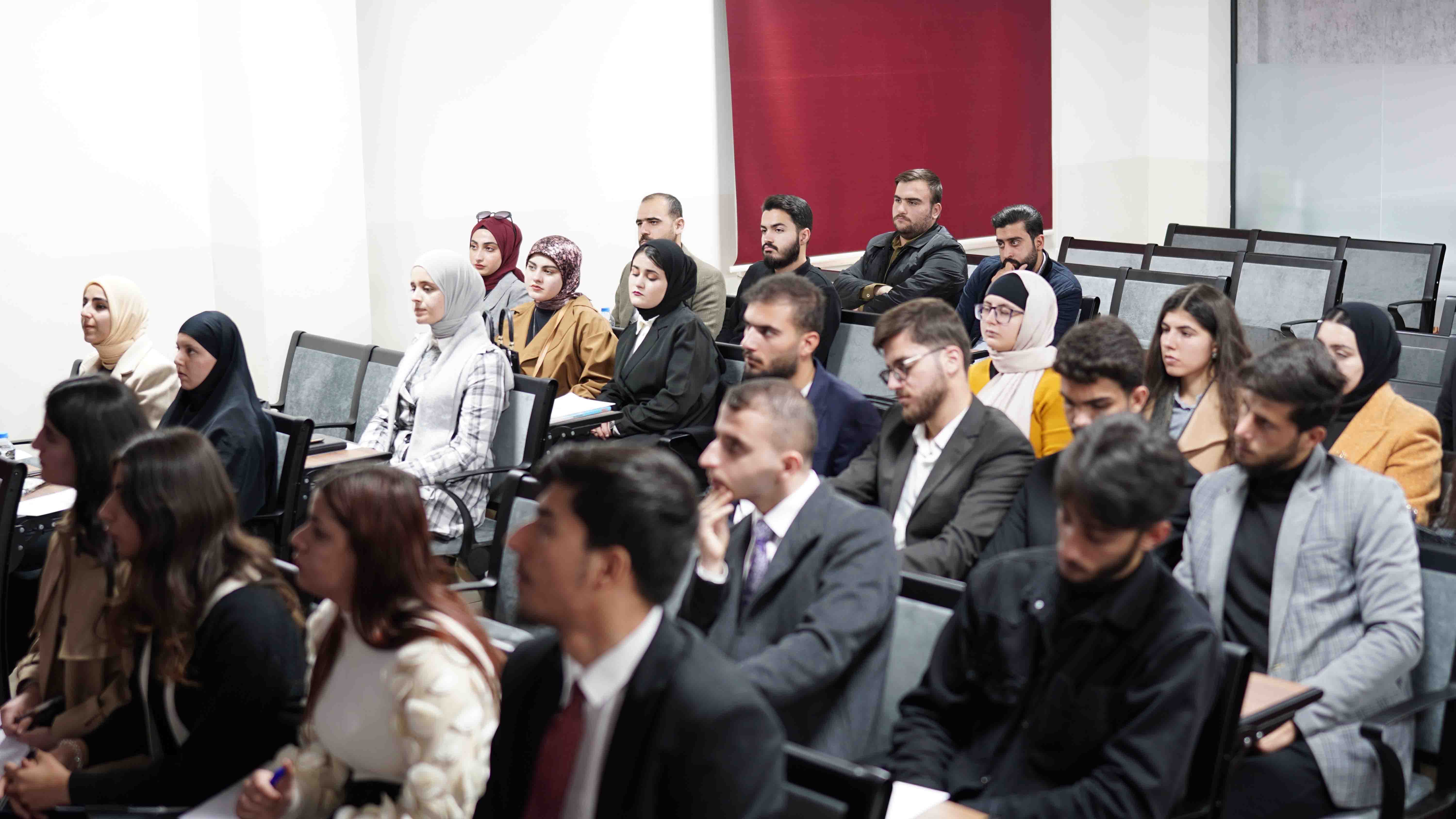The
KCIL extended several legal lessons for law students at Soran and Halabja
universities. In light of the entrenched framework that the KCIL has solidified
with KRI universities under the Justice Resilience Initiative in the Kurdistan
Region (KRI), This project is funded by the German Ministry of Foreign Affairs via Institut für Auslandsbeziehungen (IFA). This partnership
with the KRI universities aims to educate law students and familiarize them
with international law. In this context, the KCIL has launched a new initiative
offering several lectures on international criminal law, concentrating on how
to prosecute international crimes at Soran and Halabja universities.
Continuing with this intervention, on December 4-5, 2024,
at Soran University, fourth-year students from the College of Law were
introduced to international crimes and the legal responsibilities of states
under international criminal law, following a two-day agenda. On the first day,
the KCIL Executive Director, Hawre Ahmad, introduced the students to the
concepts of genocide and war crimes, addressing several legal issues related to
the nations and ethnic groups targeted by these crimes. Following this lecture,
Soran University lecturer and the KCIL Executive Board member, Hassan Hussein,
discussed state responsibility in the context of genocide and war crimes. On
the final day of lectures at the university, Professor Mohammed Rashid
delivered an online lecture on the significance of domesticating international
criminal law within the Kurdistan Region. The last lecture, focused on
individual criminal responsibility and its reflection in both international and
domestic law, was delivered by Dr. Ebad Rohi.
Thus, the KCIL aims to acquaint law students with the
latest advancements in international law, particularly in international
criminal law and international humanitarian law. It is essential for students
to develop the habit of engaging with international law beyond the formal
curriculum, fostering a legal perspective that encourages innovation and
reform. This will contribute to strengthening the legal and judicial systems in
the KRI, ultimately enhancing the rule of law and promoting crisis prevention.







